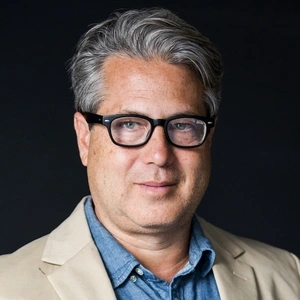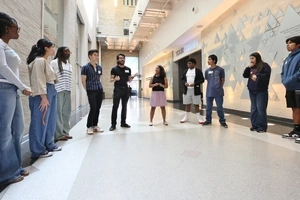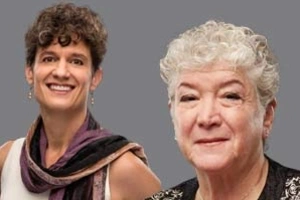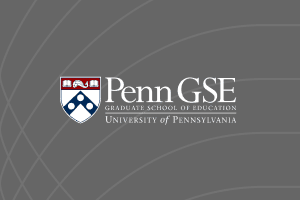Faculty Expert
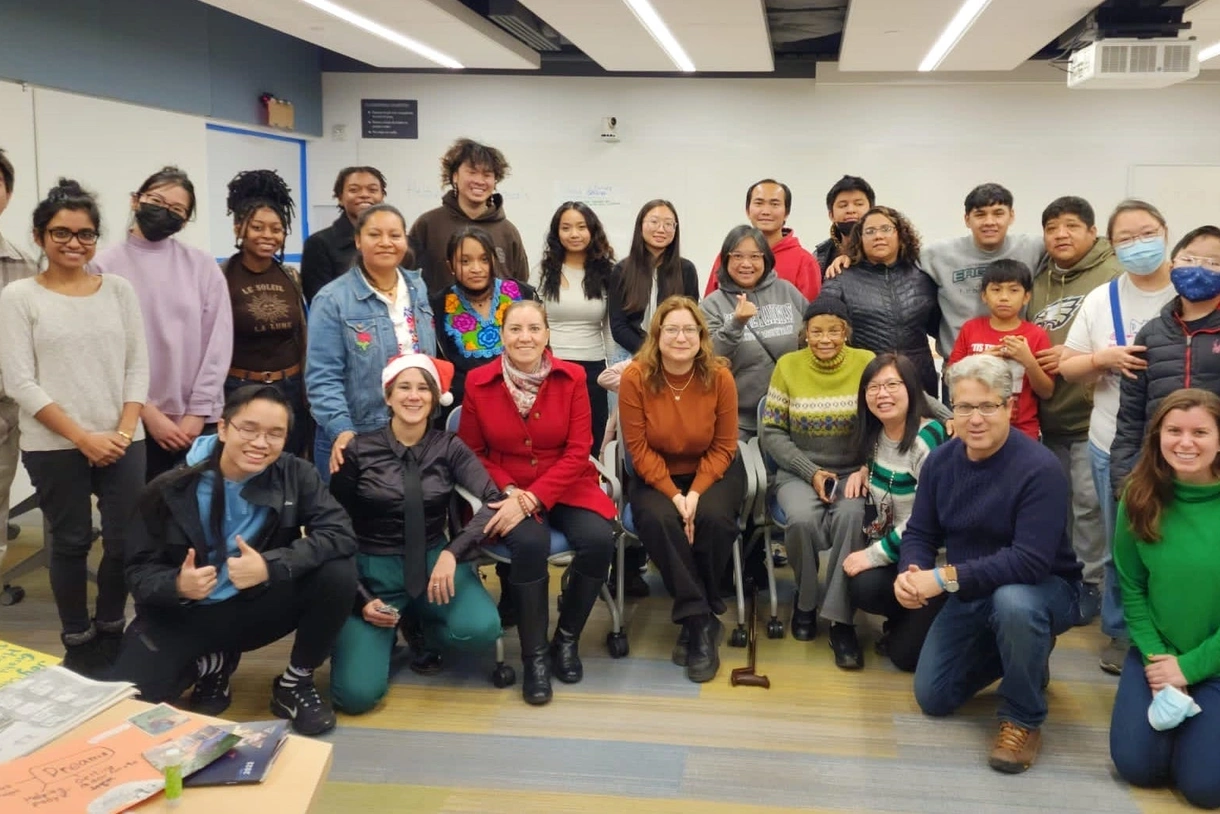
Members of the Philadelphia community are making their voices heard and conducting their own research into educational issues they face as part of a collaboration with Penn GSE.
The Communities Advancing Research in Education (CARE) Initiative is run by Penn GSE Professor Gerald Campano, who teaches in the Literacy Studies masters and doctoral programs, and alum María Paula Ghiso, a professor of literacy education at Columbia University’s Teachers College. It aims to create an equitable partnership between Penn GSE researchers and doctoral students and the local community to benefit everyone involved.
“In the field of education, there’s a consensus on the idea that families and parents have something important to say about education, but we haven’t really figured out how to leverage their expertise,” Campano said. “We believe that community-based research is one answer to that question — that when families and youth have the opportunities to investigate their own schools and the education system, they’ll have really important knowledge to share with the field.”
Last spring, the initiative’s work was recognized by the American Educational Research Association (AERA) Division G: Social Context of Education. The organization selected the CARE Initiative as the winner of the 2023 Henry T. Trueba Award for Research Leading to the Transformation of the Social Contexts of Education.
“I’ve been advocating for methodological approaches that democratize knowledge production for my whole career, and it’s been an uphill battle,” Campano said. “But more recently, these collaborative methodologies have gained more recognition in the academy. For example, the CARE Initiative has been supported by funding from the Spencer and William T. Grant Foundations. I think the award helps give those of us committed to researching alongside communities a certain degree of legitimacy, so it means a lot that Division G at AERA recognized this work and the role it plays in not just researching educational contexts, but transforming them.”
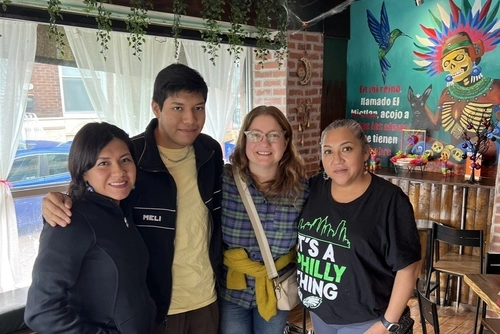
CARE Initiative research projects focus on supporting the local community’s educational interests and needs and, in particular, investigating issues of educational access injustice that impact members. Youth and families have researched, among other topics, the high school admissions processes, how language barriers and the inappropriate policing of immigration status prevent parental involvement in children’s education, racism in the curriculum, tracking, and unequal school funding.
Most recently, the CARE team has been working on a collaborative book-writing project featuring local youth, families, and community organizers. Each contributor investigated and wrote about how educational issues identified by community elders impacted their lives directly. The hope is that educators can take some lessons away from the book.
“The idea for the book originally came from community members working with the initiative as a way to communicate the needs and desires of the community as educational stakeholders to educators, school leaders, and practitioners,” said Jackie Winsch, a 3rd-year Ph.D. candidate who works with the initiative. “And to share what they viewed to be important issues around education and how they might reimagine those systems.”
“The families really consider this [project] a form of intellectual activism,” added Campano.
Another inquiry that arose from working on the book was the Chinatown Photovoice Inquiry Project. This initiative focused on the needs of Philadelphia’s Chinatown and how the youth researchers could support the community outcry against a proposed arena slated to be built there. The project resonated with CARE Initiative youth members with ties to Chinatown organizations and those who attended schools in the area.
Campano sees such community-based research as a type of research–practice partnership, a new research paradigm that involves multiple stakeholders, especially those who are most directly impacted by educational inequities. This also creates a more trusting relationship between universities and communities.
Youth and adults involved in the CARE Initiative have even presented findings at conferences, published their research in academic journals, and used their findings to advocate for change in their local contexts, Campano added.
“The collaborative inquiries have involved demystifying academia and honing reading and writing skills,” Campano said. “Many CARE Initiative youth have gone on to college. But it’s not simply about assimilation into higher education, because we also recognize that families and community members come with their own intellectual and activist legacies and ways of inquiring into the world. They have had to navigate oppressive systems, so they have been interrogating their own social situations and conducting research in their own organic ways.”
Because of this, Campano emphasized that the group really values multiple ways of knowing — incorporating both traditional academic research methods and community members’ own methods of inquiry. And the diversity of perspectives helps strengthen the research.
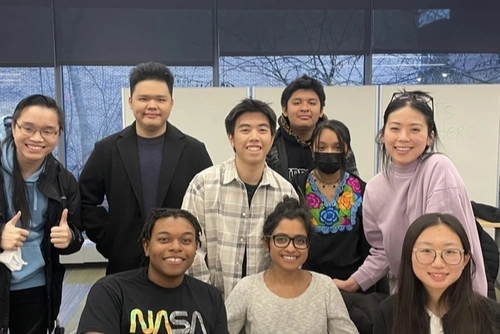
“It is a way in which researchers collaborate with the community … maximizing the knowledge gained from both groups,” said Zion, one of the youth members working in the CARE Initiative. “When it comes to my community as well as the extracurricular activities I am involved in — political organizing, clubs, etc. — I believe that because of the CARE Initiative, I have a more open-minded and community-centered mindset.”
Jasmine, another participant, said the work they did was empowering not only to those working within the group, but helped “uplift all the voices in the community who were struggling with the same issues.”
“Amid the struggles and turbulence of the present, the project has taught me that one of the most powerful forces is solidarity,” added fellow participant Owen.
Campano and Ghiso first started the initiative 12 years ago. It developed out of a dialogue with community leaders when the researchers attended a “Know Your Rights” workshop for immigrant communities in Philadelphia to learn more about the activist landscape in the city. There Campano and Ghiso learned of some of the hardships these groups face. For example, community leaders discussed the challenges families with mixed immigration status had reporting acts of violence and bullying without drawing the attention of immigration enforcement officials.
When community leaders at the event learned Campano and Ghiso were education professors with immigrant backgrounds themselves, they asked the pair about starting a partnership because, as they put it, “despite a lot of our hardships, education is what gives our community hope.”
In the first year or two, the initiative conducted no research, instead spending time getting to know the families, learning about their interests and needs, building trust, and supporting them in efforts they were already conducting. Over time, more families joined, including members of the Indonesian, Black Catholic, and Mexican communities of South Philadelphia. Now the initiative includes people of all ages from a broad range of backgrounds.
The partnership aims not only to create a shared space of research but also provide opportunities for the doctoral students working with the project to cultivate their own scholarship. Some doctoral students even do their dissertation research through their work with the project.
Claire So, the CARE Initiative’s project manager and a 4th-year Ph.D. candidate, said she worried at the start of her doctoral program that conducting research could be exploitative and conflict with her ethical values. But learning about Campano’s and Ghiso’s work and getting involved in the initiative quickly put her mind at ease.
“I think the ethos of care we hold onto … really reminds us of the importance of thinking about how we can do these things alongside the communities that we are honored to be a part of,” she said. “It’s one of the most meaningful lessons that I carry with me in my own work, both as a researcher but also as a human and an educator.”
Media Inquiries
Penn GSE Communications is here to help reporters connect with the education experts they need.
